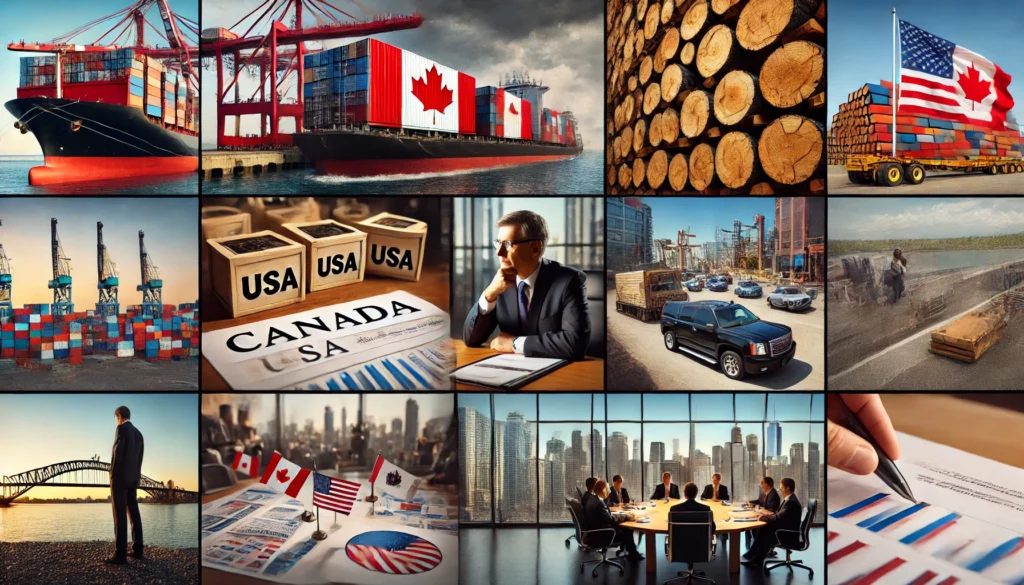This year, global elections are more significant than ever, with 4.2 billion voters across 78 countries casting their ballots. As the world braces for change, businesses must be prepared for political turbulence that could reshape regulations, markets, and trade.
In Canada, political risk is front and centre as Conservative Leader Pierre Poilievre prepares to trigger a non-confidence motion in the House of Commons this week. Although the government is expected to survive the vote with support from the NDP and Bloc Québécois, an unexpected defeat would likely force a federal election. This creates an immediate environment of uncertainty for businesses, especially as minority governments are inherently less stable.
As Warren Buffett famously said, “Predicting rain doesn’t count. Building arks does.” Businesses that haven’t yet accounted for political risk must act swiftly to create contingency plans. Being prepared for unexpected political shifts is not only prudent but essential for long-term survival.
Beyond Canada, countries such as the United States and Mexico are holding pivotal elections in 2024. These global shifts are likely to influence international relations, regulatory frameworks, and economic policies, all of which can significantly affect businesses operating in those regions.

Types of Political Risk
Political risks come in various forms, and businesses must be equipped to manage them. These risks include regulatory changes, which may affect compliance and operational costs; policy instability, where sudden changes in government priorities impact taxation, environmental laws, or trade agreements; nationalization or expropriation, where governments seize private assets; social unrest, which can disrupt supply chains and operations; and geopolitical tensions, which may lead to sanctions, embargoes, or restrictions on international trade.
As measured in PWC Global’s 26th Annual CEO Survey, 76% of Canadian CEOs expect global economic growth to decline, driven by political instability, inflation, and regulatory changes.
Moreover, government regulation was identified as a key risk, with many leaders anticipating significant changes in taxation and trade policies.
In addition, 35% of Canadian executives reported operating in a heightened risk environment, signaling that these issues are directly impacting business confidence.
Proactive Political Risk Management: Insights from the Wharton Political Risk Lab
According to the Wharton Political Risk Lab’s 2021 Geostrategy in Practice study, developed in partnership with EY-Parthenon’s Geostrategic Business Group, managing political risk requires a more proactive and strategic approach. This comprehensive study outlines five critical steps that companies can take to improve their political risk management:
- Identify and collect quantitative political risk indicators: Use data-driven methods to track political developments and risks.
- Assess the business impact of political risk: Understand how identified risks could affect operations, supply chains, and revenues.
- Integrate political risk into enterprise-wide processes: Ensure political risk management is embedded across all business functions.
- Engage the board and C-suite: Leadership must understand political risks and incorporate them into long-term strategy.
- Set up a cross-functional geostrategic committee: Create a dedicated team to monitor and respond to political risks proactively.
These steps not only help businesses mitigate risks but also position them to take advantage of the opportunities that arise from political change.
Why Businesses Should Act Now
The current political climate makes risk planning more crucial than ever. In Canada, the potential of a non-confidence vote could lead to an unexpected federal election, which could shift key policies, regulations, and trade agreements overnight. This creates a volatile environment where businesses must be prepared to adapt quickly. Political instability, especially in a minority government, introduces uncertainty into sectors like energy, healthcare, and trade, directly impacting business operations and financial forecasts.
On a global scale, elections in countries like the United States will further complicate the international landscape, as changes in government can bring about rapid shifts in trade policies, international relations, and regulations. These global elections present both challenges and opportunities for businesses operating across borders.
By assessing political risks now and embedding risk management into broader business processes, companies can stay ahead of disruptions. Acting early allows organizations to mitigate potential financial losses, safeguard supply chains, and even uncover new growth opportunities as the political landscape evolves. Waiting for political events to unfold can leave businesses vulnerable to rapid changes they are not prepared for. The key to thriving during these periods of uncertainty is a proactive and integrated risk management approach that spans all levels of an organization.
Let’s Discuss How Rise Up Strategies Can Help
Political risk is a challenge many organizations are facing, especially in this pivotal election year. At Rise Up Strategies, we help businesses navigate these complexities by offering tailored political risk assessments and strategic planning solutions. If your organization is looking to better understand how to manage political uncertainty or would like to explore ways to proactively mitigate risk, reach out to us for a conversation. Our team can guide you in integrating political risk into your overall business strategy, ensuring you’re prepared for whatever political changes may come. Let’s talk about how we can support your business in this unpredictable landscape. Contact us today to start the discussion.